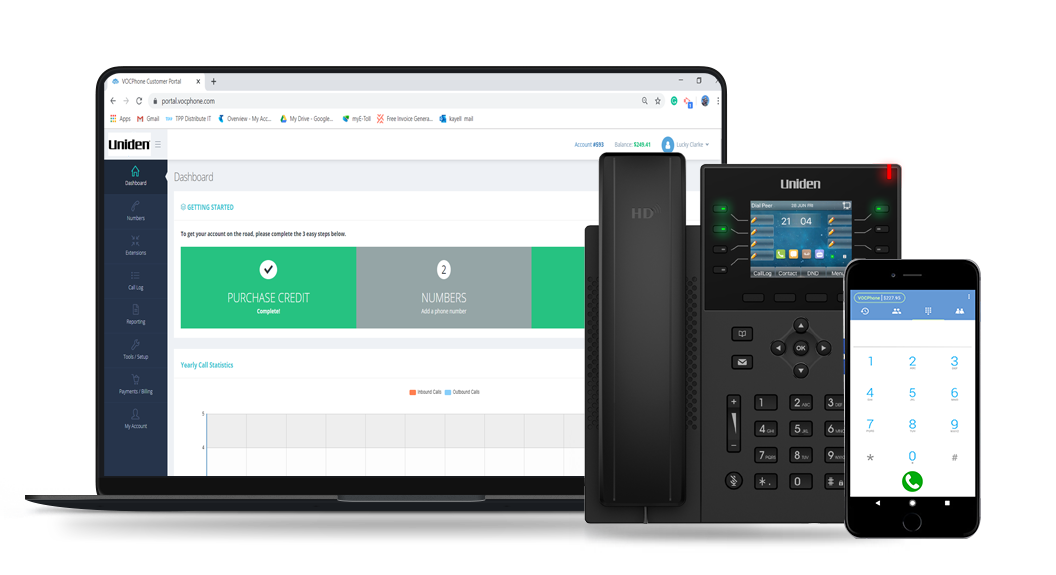
VoIP in Business for Education Providers
Discover how VoIP in business is helping education providers improve virtual learning, support, and collaboration.

Discover how VoIP in business is helping education providers improve virtual learning, support, and collaboration.
Schools, universities, and training organisations are under pressure to deliver seamless learning experiences and timely support, whether on campus or online. Traditional phone systems, with their high costs and physical limitations, are no longer equipped to meet the needs of today’s learning environments.
VoIP in business offers education providers a modern alternative. Because VoIP transmits calls via the internet instead of copper phone lines, it enables institutions to scale communications without increasing infrastructure costs. This flexibility is especially useful for handling fluctuating call volumes, integrating remote staff, and facilitating communication across multiple departments and campuses.
More importantly, VoIP enables real-time interaction and collaboration—an essential feature for virtual classrooms and support services. Educators can connect with students from anywhere, admin staff can coordinate more efficiently, and parents can stay informed with ease. Whether you're running a school or a registered training organisation (RTO), VoIP ensures that your communication channels are always open, connected, and aligned with your learning goals.

VoIP systems allow educators and students to stay connected through internet-enabled devices like laptops, smartphones, or tablets. This means lessons, discussions, and administrative support can continue seamlessly, even outside the classroom. Teachers can host live audio or video sessions, set up group discussions, and even take calls from parents or guardians, all from a single platform. VoIP also supports real-time messaging and integration with video conferencing tools.
Traditional phone systems can be expensive due to installation, maintenance, and call charges, especially for institutions that regularly communicate with families and partners across different locations. VoIP systems use the internet to transmit calls, eliminating the need for separate landlines and reducing per-minute call rates. Schools and trainers can consolidate costs by combining voice and data services, while avoiding expenses like hardware upgrades and line rentals.
VoIP enables education providers to set up centralised support centres where all incoming calls and enquiries are routed efficiently to the correct department or person. Smart call routing, automated greetings, and call queues help reduce wait times and improve the caller experience. Whether a parent is calling about a student’s attendance or a student needs IT help during online learning, VoIP ensures that enquiries are addressed promptly, increasing satisfaction and trust.
VoIP supports mobile and remote working by allowing staff to make and receive calls on their mobile phones, tablets, or laptops using softphone apps. Staff can access the same features they would have at their desks—like voicemail, call transfers, and directories—no matter where they are. This is particularly beneficial in hybrid work environments or multi-campus schools, where communication needs to remain consistent even when staff are not physically present on-site.
Auto-attendants (also known as virtual receptionists) greet callers with a pre-recorded message and direct them to the appropriate department. For education providers, this reduces the need for full-time reception staff and ensures that calls are not missed or misrouted. Whether a caller is looking for enrollment info, student services, or a specific teacher, the auto-attendant helps them navigate quickly and efficiently.
Call analytics provide insights into how communication channels are being used. Education providers can track average response times, peak call hours, and missed calls. This data helps identify areas that may be under-resourced and informs decisions on staffing, scheduling, or improving service delivery. It also enables management teams to monitor performance and maintain high standards in parent and student communications.
With voicemail-to-email, missed voice messages are transcribed and sent directly to staff inboxes. This ensures that important messages from students, parents, or colleagues are not overlooked and can be reviewed at a convenient time. It also allows staff to prioritise follow-ups without needing to log in to a separate voicemail system. For educators and admin staff working remotely or part-time, this feature boosts efficiency.
Cloud-based VoIP systems allow users to make and receive calls on multiple devices simultaneously—phones, desktops, laptops, or tablets. This flexibility is essential for education providers where staff often move between classrooms, campuses, or work remotely. With multi-device support, team members can respond to calls no matter where they are, ensuring important conversations are never delayed or missed due to location.
Call recording allows institutions to keep a secure, reviewable record of conversations for training, compliance, and dispute resolution purposes. In sensitive environments like schools, this can be essential when dealing with student wellbeing, complaints, or parent enquiries. It helps maintain transparency, reinforces accountability, and supports ongoing staff development by offering real examples for review or feedback.
Uniden has been at the forefront of telecommunications, offering cutting-edge VoIP solutions tailored for businesses and institutions. For education providers, we offer scalable, easy-to-use virtual business phone systems that empower staff and enhance the learning experience. Whether you're a small training provider or a large multi-campus school, our VoIP solutions ensure your communication systems are built for reliability, flexibility, and future growth.

Request a callback from our team today and we’ll guide you through solutions tailored for your educational environment.
Cloud-based business phones refer to using internet-based phone systems rather than traditional lines. In education, it supports remote learning, admin coordination, and parent communication.
Yes, most VoIP systems come with end-to-end encryption, secure login credentials, and data management tools to ensure student and staff privacy.
In most cases, yes. As long as your internet connection is stable and has adequate bandwidth, VoIP will function smoothly without major infrastructure changes.
Savings vary, but many education providers report significant reductions in phone bills, maintenance costs, and hardware expenses after moving to VoIP.
Absolutely. VoIP systems are cloud-based, making them ideal for multi-campus schools or education providers with remote teaching and support staff.